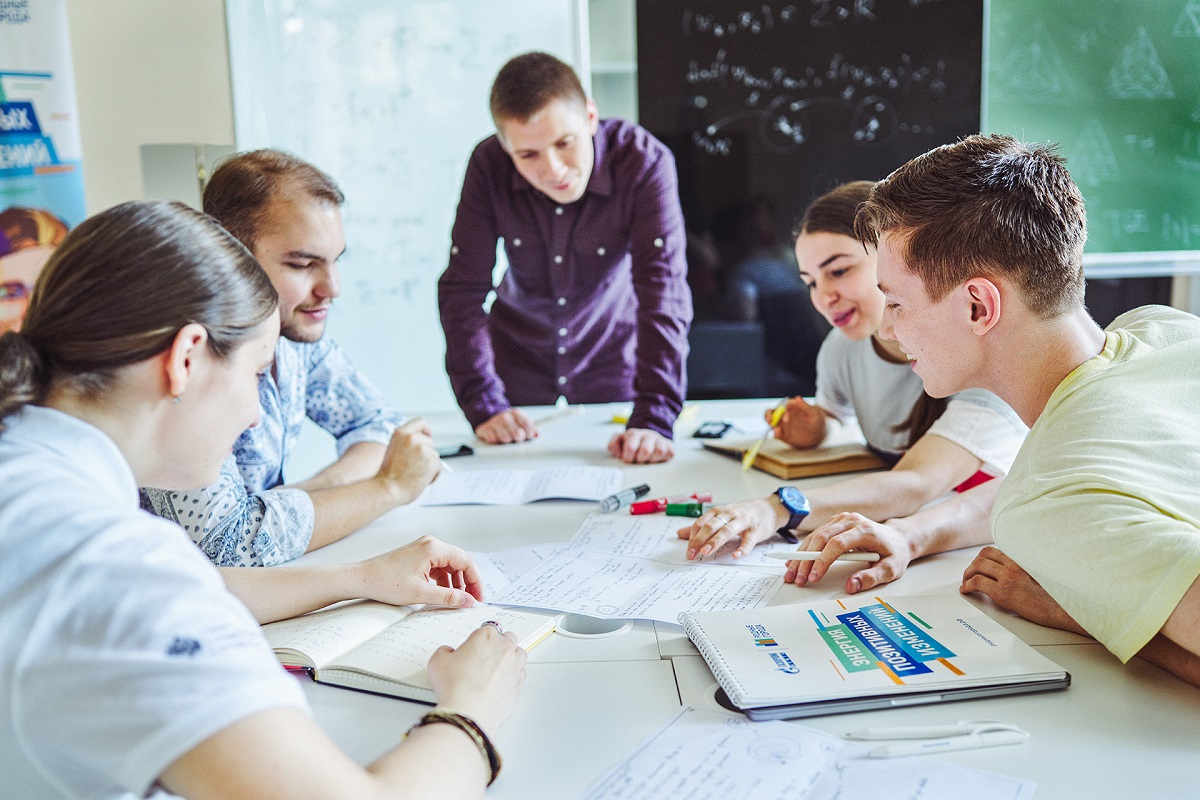A new faculty is to appear at St Petersburg University

St Petersburg University is setting up the Faculty of Mathematics and Computer Science.
Students will study all branches of modern mathematics: lectures and seminars will be conducted by University’s lecturers, including members of Chebyshev Laboratory, St Petersburg University. Specialists from Gazprom Neft, Yandex, JetBrains and other technology companies will take part in teaching courses on data analysis, machine learning and other areas of computer science. Students will be able to study technologies and carry out educational projects under the supervision of practitioners.
The teaching staff of this faculty is the basic staff that takes part in the implementation of three bachelor’s programmes: ‘Mathematics’, ‘Modern Programming’, and ‘Mathematics, Algorithms and Data Analysis’. Admission to ‘Mathematics’ has been taking place at the University since 2015, and ‘Modern Programming’ since 2018. The last programme is new, and it has been developed together with Yandex staff. It will be possible to continue studying on the master's programme ‘Advanced Mathematics’, which will be opened this year with the support of Gazprom Neft. The master’s programme will bring together talented students from Russia, Eastern Europe and Asia – to achieve this the oil company will establish a scholarship for gifted students.
The key element of new programmes is mathematics. In junior courses, these programmes may intersect while students study mathematical subjects.
Stanislav Smirnov, Academic supervisor of Chebyshev Laboratory
‘Then they will specialise in their chosen field of study. Some will be engaged in algorithms and data processing; some will study machine learning or applied mathematics. And others will work on purely fundamental projects: our theoretical understanding of machine learning is unsatisfactory today, and such specialists are highly sought after and in great demand,’ says Stanislav Smirnov, the Fields medallist and academic supervisor of Chebyshev Laboratory, St Petersburg University.
Gazprom Neft plans not only to support the master’s programme, but also to invest in a fundamental research and development programme based on the new faculty. The company's goal is to develop new algorithms and simulation tools to improve the efficiency of prospecting surveys and oil production.
‘Optimisation of mathematical algorithms makes it possible for us to efficiently process huge data arrays from industrial production: from oil fields to processing plants. We will continue to invest in joint research, as well as develop a programme of grants and scholarships for students and young scientists. This has proven its effectiveness during our seven-year collaboration with Chebyshev Laboratory. New digital solutions developed together with mathematicians at St Petersburg University are already helping us in creating digital models of working industries and fields,’ notes Alexander Dybal, a member of Gazprom Neft management board.
‘These days, knowledge is being accumulated not only at universities and research centres, but also at technology companies. We are very happy that St Petersburg University will establish a faculty where scientists and practitioners will work together and prepare the next generation of programmers and researchers who will create new technologies,’ says Elena Bunina, General Director of Yandex in Russia.
In 2019, the number of students enrolled on government-funded places for bachelor’s programmes will be: ‘Mathematics’ – 55, ‘Modern Programming’ – 25, ‘Mathematics, Algorithms and Data Analysis’ – 20. For the master's programme ‘Advanced Mathematics’ there will be 25 government-funded places. It is also possible to study on a fee-paying (contractual) basis. The results of the Unified State Examination and Olympiads will be taken into account when applying for admission for bachelor’s programmes. The best applicants can hope for scholarships from the University’s strategic partners.

